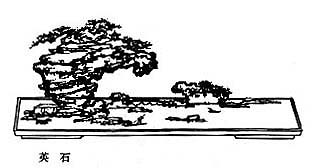論
語
Lun Yu 
 – Les Entretiens de Confucius
– Les Entretiens de Confucius
Le Maître échange propos, anecdotes, brèves paraboles et maximes avec ses disciples. Tr. Couvreur (fr), Legge (en) et Lau (en).
                                       | |||||||||||||||||||||||||||||||||||||||||||||||||
| |||||||||||||||||||||||||||||||||||||||||||||||||
 |  |
Lunyu XIV. 19. (366)
Le Maître ayant dit que Ling, prince de Wei, n'était pas dans la [bonne] Voie, Ki K'ang tzeu demanda comment il n'avait pas encore causé la perte de son pays. Confucius répondit : « Tchoung chou Iu est chargé de recevoir les hôtes et les étrangers ; T'ouo dirige les rites et prend la parole dans le temple des ancêtres ; Wang suenn Kia s'occupe de l'armée. Comment causerait-il la perte de son pays ? »
Couvreur XIV.20.
The importance of good and able ministers:– seen in the State of Wei.
1. The Master was speaking about the unprincipled course of the duke Ling of Wei, when Ch'î K'ang said, "Since he is of such a character, how is it he does not lose his state?"
2. Confucius said, "The Chung-shû Yü has the superintendence of his guests and of strangers; the litanist, T'o, has the management of his ancestral temple; and Wang-sun Chiâ has the direction of the army and forces:– with such officers as these, how should he lose his state?"
Legge XIV.20.
When the Master spoke of the total lack of moral principle on the part of Duke Ling of Wei, K'ang Tzu commented, 'That being the case, how is it he did not lose his state?'
Confucius said, 'Chung-shu Yu was responsible for foreign visitors, Priest T'uo for the ancestral temple and Wang-sun Chia for military affairs. That being the case, why should he have lost his state?'
Lau [14:19]

Les Entretiens de Confucius – Lun Yu XIV. 19. (366) – Chinois on/off – Français/English
Alias the Lunyu, the Lun Yü, the Analects, les Entretiens du maître avec ses disciples.
Le Canon des Poèmes, Les Entretiens, La Grande Étude, Le Juste Milieu, Les Trois Caractères, Le Livre des Mutations, De la Voie et la Vertu, 300 poèmes Tang, L'Art de la guerre, Trente-six stratagèmes
Bienvenue, aide, notes, introduction, table.
Index – Contact – Haut de page
